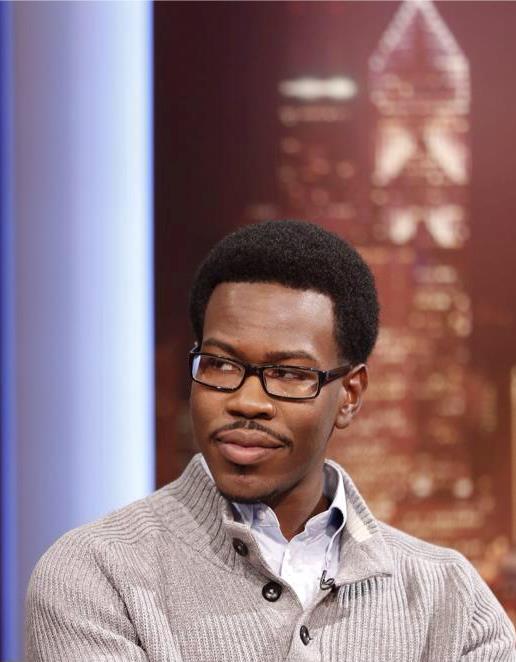What to Do When Your Partner Tells You They've Been Raped

By:
When she was a 17-year-old high school senior, Marissa took a spring break trip to the Dominican Republic. A night of flirting with a resort employee went too far, and a man allegedly raped her.
Marissa, who asked ATTN: not to publish her last name, says the ordeal left her fearful she would infect somebody with a sexually transmitted disease (despite multiple negative test results that proved the opposite), complicating her love life. She also wrestled with guilt, thinking that she had put herself in a bad situation and suffered the consequences.
Today, the now-26-year-old Chicago artist understands that these thoughts are wrong: The only person to blame for what happened is the man who allegedly violated her.
Marissa kept what happened to her from most people in her life for fear of their judgment, but last year — six months into a relationship — Marissa says she told her boyfriend what happened in the Dominican Republic all those years ago. And his response was just about perfect.
"He was just really good at listening, and I just knew there wasn’t any tone of judgment from him,” Marissa said. “It was just him supporting me and wanting me to open up about it, if I felt comfortable to. He didn’t ask a lot of questions and when he did they weren’t these prying questions, he just wanted me to share as much as I wanted to."
Marissa’s boyfriend did a lot of things right. But not every survivor is fortunate enough to have a romantic partner who responds so well.
Nearly 300,000 people are sexually assaulted in the U.S. every year, and the vast majority never report their abusers, according to the Rape, Abuse & Incest National Network, or RAINN. Survivors grapple with a number of issues when it comes to romantic relationships, said Candice Lopez, director of RAINN's national sexual assault hotline.
“We know that sexual assault is such a prevalent crime so it's good to think: ‘What would I say if somebody I loved told me that happened to them?’” Lopez told ATTN:.
Here’s some advice about what you should and shouldn’t do if your romantic partner tells you they are a rape survivor.
Say thank you, and let them know you’re there.
“One of the first things to do is to thank them for sharing their experience,” Lopez said. “It takes a lot to tell somebody you care about that you've been hurt...and then let them know you're there to support them in whatever they need.”
Don’t tell them what to do.
“Provide options,” Lopez said. “But don’t tell them what to do.”
That means let them know that they can go to the police, get checked out at a hospital, seek a therapist, or utilize other resources for survivors — but don’t get bossy.
“One of the best things a person can do for a survivor is knowing what the resources are for them,” Lopez said. “Know that there is support for them outside of you.”
Respect their boundaries.
Lopez said it’s important that people who date survivors of rape understand how to respect their boundaries when it comes to intimacy. Because sexual assault survivors were often victimized by people close to them they can suffer from trust issues, even when it comes to a person they are romantically interested in, she said. Certain sexual acts can also bring on painful memories.
Saba, 26, said she was in high school, when her boyfriend at the time allegedly physically forced her to have oral sex with him.
“After that happened in high school I couldn’t perform oral sex on a guy for several years, and I never explained why, and I think every guy I dated or was intimate with might have assumed it was because I thought it was gross or was being a diva,” Saba, who also asked ATTN: not to publish her last name, explained. “But it was literally because it brought back really bad memories. Even a guy touching my head very gently reminded me of being physically forced.”
Don’t challenge their credibility.
Four years after her assault, when she was 22, Saba says she told a romantic partner what had happened to her.
“I remember telling one guy I was dating about it,” said Saba, a law student in New York. “He just didn’t agree that it was rape or even sexual assault. I instantly felt minimized.”
Asking what happened is different than questioning a person’s actions or whether their claims are valid, which you should avoid, especially if they were just recently assaulted. That means not asking questions like “where were you, what were you doing there and why, or anything that insinuates it was their fault or they had power over what happened,” Lopez said.
“Follow their lead.”
A lot of times, when we know somebody we care about has been hurt, our instinct is telling them we will fix their problems and that everything will be okay, Lopez explained. Some people try to play detective and get to the bottom of what happened, but others would just as soon want to pretend it never happened.
“But with sex assault survivors we want to follow their lead; ask them what they need for themselves,” Lopez said. “Empower them to decide the steps around their healing process — that's key to ensure they overcome trauma and get the support they need.”
